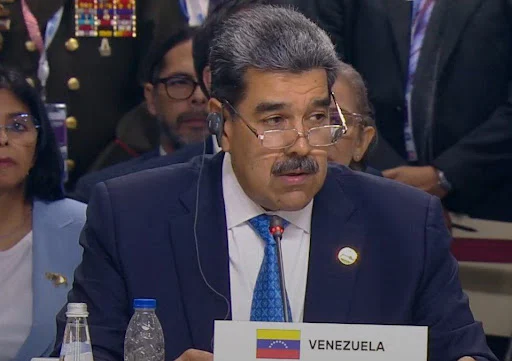At the recent BRICS Summit, the discourse went beyond mere economic cooperation as leaders voiced their aspirations for a transformative shift in the global balance of power. President Thongloun Sisoulith of Laos officially expressed his country’s desire to join the BRICS bloc, which currently comprises Brazil, Russia, India, China, and South Africa. "We look forward to your support and acceptance of Laos as a future member of BRICS," President Sisoulith announced, signaling Laos' readiness to align itself with what is increasingly seen as a counterbalance to Western dominance.
The Lao leader’s declaration comes amid growing interest from countries in the Global South to be part of BRICS, which is gaining recognition as a platform for challenging the established order. With new geopolitical alignments taking shape, the call for a restructured international system resonates with nations seeking to escape the constraints of what is often described as a Western-centric world order.
At the summit, Belarusian President Alexander Lukashenko was vocal in his endorsement of BRICS as a force capable of ending the "collective West's" dominance over global affairs. Lukashenko criticized Western countries for failing to uphold a responsible approach to international relations, claiming they have neglected the principles of a civilized global society. He emphasized that BRICS nations hold the potential to "ensure that the levers of influence pass into the hands of the progressive majority," a statement that underscores the bloc's role in advocating for a multipolar world.
This vision of a multipolar order was echoed by Venezuelan President Nicolás Maduro, who did not shy away from highlighting the flaws within existing global institutions. At the Outreach/BRICS Plus meeting, Maduro condemned the International Criminal Court (ICC) for what he termed its selective approach to justice, accusing it of targeting countries in the Global South while turning a blind eye to atrocities committed elsewhere. "Every missile that hits residential buildings in the Gaza Strip, every new death and injury in Beirut or southern Lebanon—these events destroy the United Nations system. Where is the ICC? Or is it used only to persecute the countries of the Global South?" he questioned, drawing attention to the disparity in the enforcement of international law.
Maduro's remarks reflect growing frustration among Global South nations over the perceived double standards in the application of justice and the protection of human rights. The Venezuelan leader’s comments were a stark reminder of the unresolved conflicts and humanitarian crises that continue to unfold, particularly in regions where the West is accused of exerting disproportionate influence.
The convergence of views at the BRICS Summit suggests a renewed momentum towards creating a global order that is more representative of emerging economies and developing nations. The potential inclusion of Laos into the bloc would signal not only an expansion in BRICS’ geographical reach but also an affirmation of its goal to amplify the voices of the Global South in shaping international policies.
The summit’s discussions clearly indicated a shared desire among member states and potential future members like Laos to reframe the narrative of global governance. With leaders like Lukashenko and Maduro advocating for a world where the influence is spread across a wider spectrum of nations, the BRICS bloc stands as a potential catalyst for redefining the rules of international engagement in the 21st century.
Tags
International

